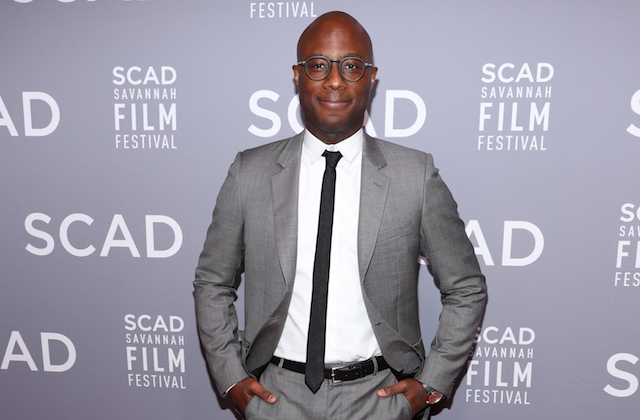Filmmaker Barry Jenkins‘ upcoming adaptation of James Baldwin‘s 1974 novel, "If Beale Street Could Talk," is the first English-language big screen version of the late author’s work. Jenkins, along with several other Black writers and filmmakers, told the Los Angeles Times on Saturday (November 24) that Hollywood cannot afford to sideline the African-American literary tradition any longer.
“It’s not only very clear there is an audience for this work, but to take it even further, there are people who are familiar with this work in its literary form—the same way people are familiar with work of non-Black artists," Jenkins explains. He adds that Black audiences and other moviegoers of color forced Hollywood to better represent them on screen: "People are standing at the theaters, saying, ‘Show us us.’"
Despite recent entertainment industry momentum that makes projects like "Beale Street" possible, Hollywood still rarely releases adaptations of works by Black authors. The Times reports that this trend flies in the face of past critical and commercial success:
rnt
More to the point, Hollywood wasn’t exactly searching out African-American literature—despite the success as far back as 1985 for “The Color Purple,” the Steven Spielberg-directed film from Alice Walker’s novel, which earned 11 Academy Award nominations and more than $94 million at the U.S. box office.
t
Before 2016, when Denzel Washington turned “Fences” into a film with four Oscar nominations, including a supporting actress win for Viola Davis, just one August Wilson play, “The Piano Lesson,” had been adapted by Hollywood—as a Hallmark Hall of Fame TV movie. Author Zora Neale Hurston was adapted twice, in 2001 by Showtime from the 1933 short story “The Gilded Six-Bits” and in 2005 for an ABC TV movie, “Their Eyes Were Watching God,” starring Halle Barry. Even Toni Morrison has been adapted just once (1998’s “Beloved”), “which is craaaazy,” says Jenkins, repeating himself for emphasis, “which is craaaaazy.”
This erasure impacts both classic and contemporary Black writers’ prospects in entertainment. “I remember being in L.A. and all my White male contemporaries were having meetings for any halfway decent book, but people of color were not getting any meetings," National Book Award-winning author Jacqueline Woodson recounts. "It was pretty blatant.”
Woodson notes that she now fields new interest in adaptations of her novel, "Another Brooklyn," and several young adult works.
“People are making films, saying, ‘Look at us, we exist and we are wholly human,’ and they are not writing it for White folks either,” she says. “They are not excluding people; they’re saying, ‘This is a party at my house, but you’re invited.’”
The article also talks about why film is an important extention of literature:
rnt
Most notable is the way Jenkins frames his shots and lingers on the characters’ faces in a way that slows time and makes the love between the two protagonists feel visceral in a way that even Baldwin could not convey on the page.
t
“This is why adaptations are so vital,” Jenkins says. “It’s one thing to read a book and intellectually picture and imagine what these characters feel, but to see these actors give it full body is different.”
t
Jenkins also used those images for another reason. “For many White audience members, this might be the first time they’ve met the unbroken gaze of an African American—even when you read a book, you can’t feel that connection, but here it becomes unbreakable.”
Read more commentary from Jenkins, Woodson, "The Hate U Give" director George Tillman Jr. and others at LATimes.com.
